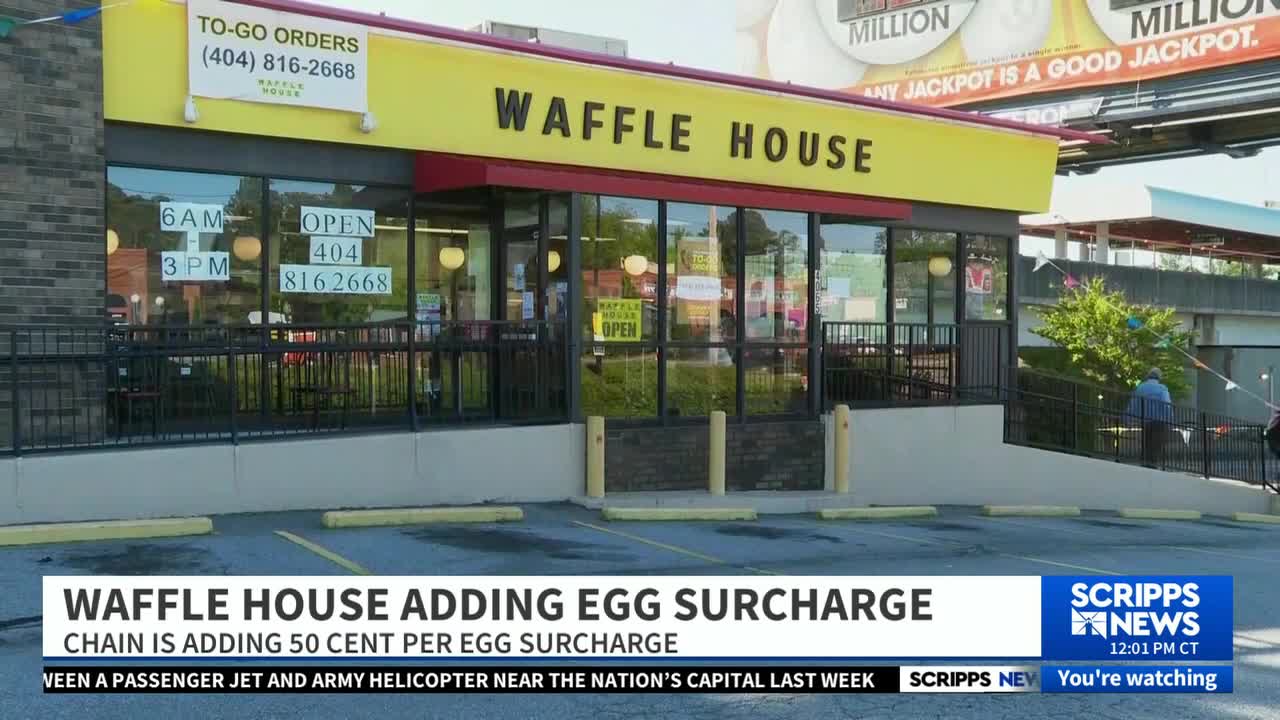Trader Joe's, other retailers limiting how many eggs people can buy amid shortage

Trader Joe's and other retailers have recently moved to enact a purchase limit on eggs as a result of ongoing pricing and availability issues brought on by the H5N1 bird flu.
"Due to ongoing issues with the supply of eggs, we are currently limiting egg purchases to one dozen per customer, per day, in all Trader Joe’s stores across the country,” the grocery chain confirmed in a Monday statement to Paste BN.
About 600 Trader Joe locations across the country will be impacted by the change. The hope is that "limits will help to ensure that as many of our customers who need eggs are able to purchase them when they visit Trader Joe’s," the statement reads.
Other grocery retailers, including Costco are following suit, CNN reported. Because of the purchase limit, Costco customers are only allowed to purchase a maximum of three egg packages, typically sold in two-dozen or four-dozen cartons.
Costco, Aldi, and Whole Foods did not immediately respond to Paste BN's request for comment regarding possible egg limits for customers.
Shoppers have taken to social media to document the egg crisis, sharing photos and videos of empty shelves, limit notices and other shoppers mass purchasing eggs.
Need a break? Play the Paste BN Daily Crossword Puzzle.
'No purchase limits' imposed at Walmart, with one exception
No purchase limits on eggs have been imposed nationally, except for on 60-count cartons, which have been limited to two per purchase, a Walmart spokesperson said in a Tuesday statement.
The limit was implemented to "help ensure more customers can have access to eggs," the statement reads. "Although supply is very tight, we’re working with suppliers to try and help meet customer demand, while striving to keep prices as low as possible."
Waffle House implements ‘temporary’ 50-cent surcharge per egg
Waffle House enacted a temporary egg surcharge last week due to a "dramatic increase in egg prices." Approximately 2,100 diners across the country will charge customers 50 cents per egg, Paste BN previously reported.
“Consumers and restaurants are being forced to make difficult decisions,” Waffle House said in a statement. “Rather than increasing prices across the menu, this is a temporary targeted surcharge tied to the unprecedented rise in egg prices.”
Eggs will continue to be available in popular menu offerings despite the extra charge, according to the chain, which also said it hopes the price fluctuations will be “short-lived.” Waffle House serves around 272 million eggs per year, according to its website, well surpassing even its legendary waffles, of which it sells just 124 million.
“We are continuously monitoring egg prices and will adjust or remove the surcharge as market conditions allow,” the statement read.
Where have all the eggs gone? And why are they so expensive?
The current "egg-flation” crisis is the result of the current bird flu outbreak, which has killed off egg-laying poultry en mass since it began in January 2022.
That, combined with factors such as inflation or a change in laws and regulations, has directly impacted the average price of eggs. By the end of 2024, the average price of eggs per dozen in the U.S. was $4.10, double the cost reported in August 2023, per the Bureau of Labor Statistics.
Eggs prices are expected to rise by about 20% over the year, while overall food prices are only forecast to increase by 2.2%, according to an outlook from the U.S. Department of Agriculture.
The virus has infected about 150 million poultry across 50 states, according to the Centers for Disease Control and Prevention. As a result of the spread, infected birds have been selectively slaughtered across the country, sometimes millions of birds at a single location.
More than 13 million hens have been slaughtered or lost since December, according to the U.S. Agriculture Department's latest egg markets overview.
The average cost of eggs was $5.29 a dozen in late January, up from about $3.50 around the same time last year, NBC reported, citing the NIQ consumer research group.
This story was updated to add new information.
Contributing: Mary Walrath-Holdridge and Betty Lin-Fisher, Paste BN